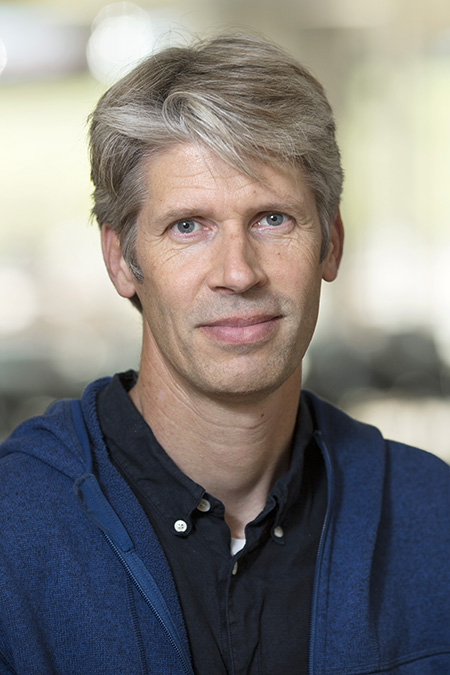Genetic surgery can take personalised medicine to a whole new level
Meet Jacob Giehm Mikkelsen
"We use the virus's own biology as a wrapping to transport the CRISPR tools into the right cells in the body. It’s incredibly interesting if we can find a key to deliver them effectively."
How can we add new genetic information to the genome, and do it safely?
Professor Jacob Giehm Mikkelsen, born in 1969, has spent many years working on very specific interventions in the genome of humans – genetic surgery.
"When CRISPR revolutionised gene therapy by making precise editing of the human genome possible, here in Aarhus we were in a good position to get onboard that train. This means that Aarhus is today a leader in CRISPR technology in Denmark,” he says.
Jacob Giehm Mikkelsen is dedicated to developing techniques and building bridges to the clinical environments – e.g. with the Innovation Fund Denmark’s PASCAL-MID Research Centre, where researchers are working to repair rare genetic defects in patients who have an immune system that fails them and cannot defend the body against the most common microorganisms. The hope is to cure the diseases by correcting the genetic information in the patient's stem cells that form the immune system. The researchers in Aarhus carry out very specific genetic interventions targeting precisely the mutations that the individual patient has.
Strong desire for collaboration
In the long term, the dream is to find a method that makes it safe to perform CRISPR treatments directly in the patients, instead of taking cells out of the body and making the changes there, explains Jacob Giehm Mikkelsen, who has spent many years working on using a heavily modified HIV virus as a delivery method.

"We use the virus's own biology as a wrapping to transport the CRISPR tools into the right cells in the body. It’s incredibly interesting if we can find a key to deliver them effectively."
The technology has been developed in Aarhus, and it is now being expanded in collaboration with Novo Nordisk, among others.
In the years 2001-2003, Jacob Giehm Mikkelsen worked closely with Professor Mark Kay at Stanford University in California. At that time, Kay and his laboratory led the way in research into gene therapy as a treatment for haemophilia, and this had an impact on his own career. His stay has also influenced his role as supervisor and his collaboration with the students.
"My work isn’t just about developing research, it’s also about developing talented young researchers and attracting new ones. For me, one of the things I took with me from Stanford University was establishing a discussion between equals. In Aarhus, we’ve created a similar open and fruitful environment where everyone can contribute," he says.
This wish to collaborate also applies to other researchers and their projects.
"At the moment, we’re very preoccupied with genome-wide CRISPR libraries, which make it possible to knock all genes in the genome out of function one by one. This is a new tool in personalised medicine, and I'm certain it could be interesting for others," says Jacob Giehm Mikkelsen. Read more about genome-wide CRISPR libraries.
Jacob Giehm Mikkelsen has been a member of the Danish Council on Ethics since 2019.